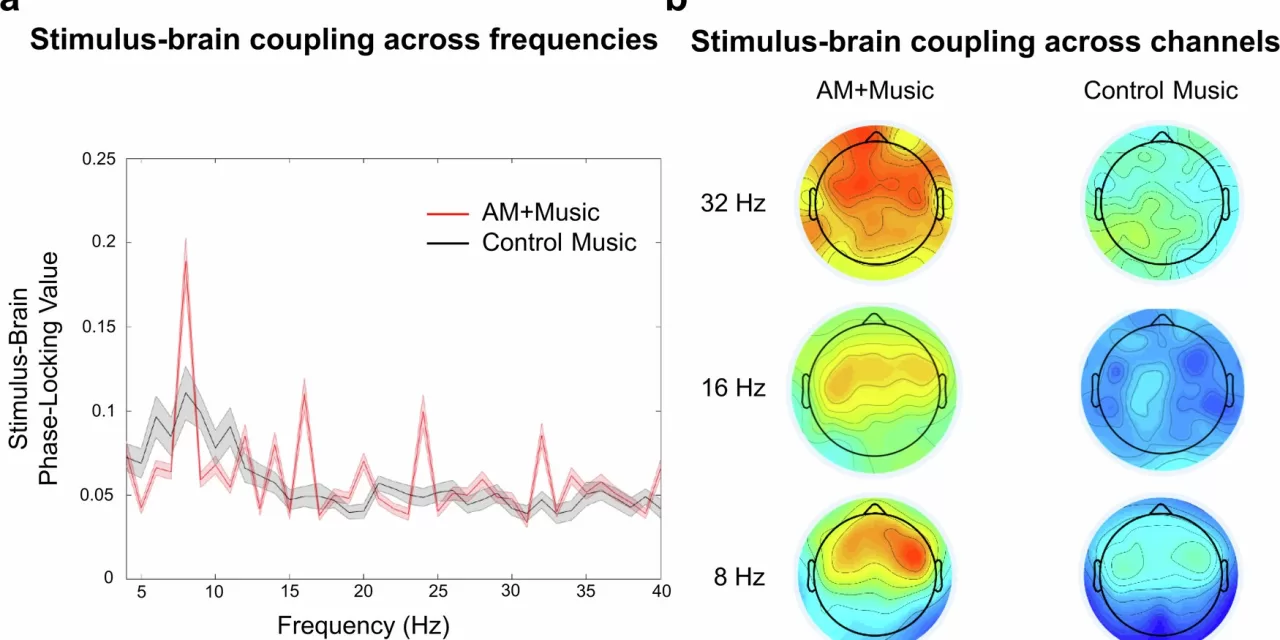For many, putting on headphones is as natural as reaching for a cup of coffee when it’s time to focus. Nearly 80% of adults turn to music while working, and curated playlists for productivity have become staples on platforms like Spotify and Apple Music. But can the right music truly boost focus, especially for those with ADHD? New research says yes—and provides insight into the science behind it.
Psyche Loui, an associate professor of music and head of the Music, Imaging, and Neural Dynamics (MIND) Laboratory at Northeastern University, has teamed up with Brain.fm, a company designing music specifically for concentration. Their collaborative study reveals that certain musical characteristics can stimulate brain areas crucial for staying on task—benefits that are particularly pronounced for individuals with attentional difficulties, including ADHD.
In their research, published in Communication Biology, Loui and her team explored how “rapid modulations” in music—quickly adjusting acoustic signals to enhance dynamics—impact focus. The study involved EEG and MRI scans of 40 participants as they performed attention-intensive tasks while listening to various sound conditions: Brain.fm music, non-Brain.fm music, pink noise, and silence.
The results were striking. The Brain.fm compositions, characterized by electronic instrumentals with heavy bass and climbing synthesizer scales, activated brain regions associated with attention more effectively than other auditory conditions.
For participants with attentional difficulties, the team experimented further by intensifying the rapid modulations. These adjustments yielded even greater benefits, underscoring the potential of music tailored to specific cognitive needs.
The Science Behind the Music
Loui attributes the effectiveness of this music to its interaction with the brain’s natural rhythms. “The brain oscillates at certain frequencies,” she explains. “By embedding those frequencies in music, we can influence brain activity, helping it synchronize with these modulations.” This synchronization, or “phase locking,” enhances attentional networks, particularly for individuals with ADHD symptoms, who are more sensitive to such interventions.
However, Loui emphasizes that everyone can benefit from music designed for focus, not just those with formal ADHD diagnoses. “Inattention or hyperactivity can affect anyone, especially when trying to complete demanding tasks. Background music engineered to sustain focus could make a big difference.”
Choosing the Right Music
While Brain.fm’s unique compositions are scientifically validated, Loui offers practical advice for choosing focus-friendly music in general. “Look for fast-paced, energizing music without lyrics,” she suggests. Such music can excite and motivate without the distraction of words.
A Gateway to Cognitive Benefits
The study builds on Loui’s earlier work showing that music—especially music created with specific goals—can provide tangible cognitive benefits. “Music is a form of brain stimulation,” she notes. “Whether it’s to concentrate, work out, or sleep better, we’re only beginning to understand how engineered music can enhance different aspects of life.”
As research continues, one thing is clear: the right music can be more than a soundtrack to your work—it can be a tool to sharpen your mind.
For more on this study, see Kevin J. P. Woods et al, “Rapid modulation in music supports attention in listeners with attentional difficulties,” Communications Biology (2024). DOI: 10.1038/s42003-024-07026-3.












